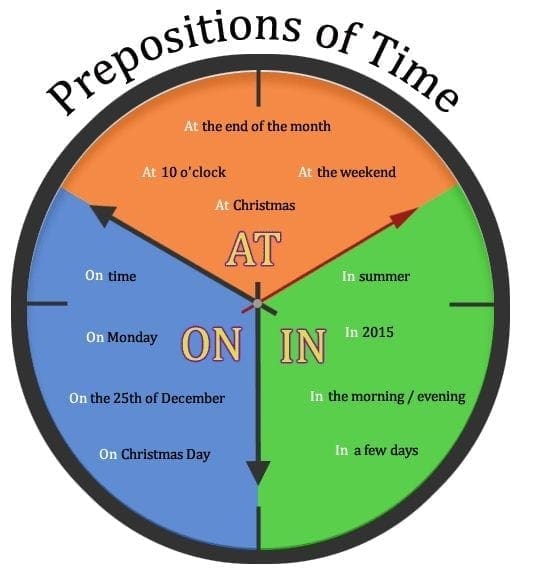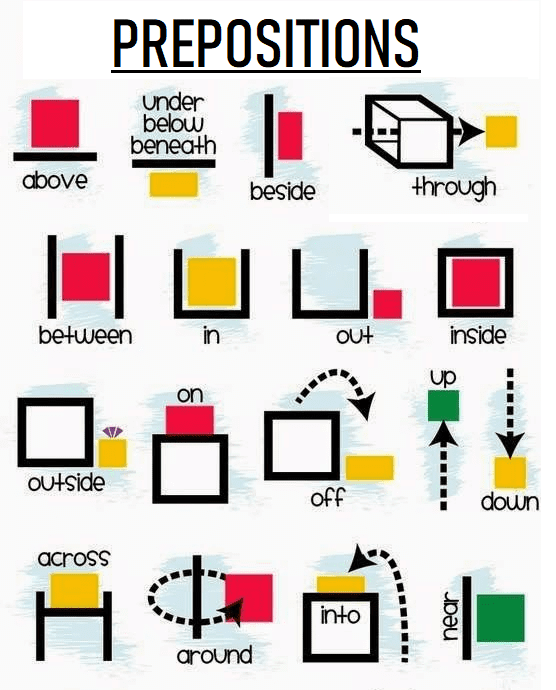Las preposiciones en inglés se someten a una única simple norma. Y, a diferencia de la mayoría de las normas, esta no tiene ninguna excepción.
Regla: Luego de una preposición, sólo puede haber un sustantivo.
Nunca debe estar acompañado un verbo.
Por sustantivo, nos referimos a:
- noun (bird, computer, coffee) | sustantivo (pájaro, computadora, café).
- proper noun (name) (Paris, Johanna) | nombre propio (París, Johanna).
- pronoun (they, her, you) | pronombre (ellos, ella, vos).
- noun group (my first job) | grupo de sustantivos (mi primer trabajo).
- gerund (running) | gerundio (corriendo)
Inscribite en nuestras clases de inglés online hoy!
Un verbo y un gerundio son dos tipos de palabras distintas, por eso no se quiebra la regla. Un gerundio es una forma no pronominal del verbo. Esto quiere decir que siempre va a tener un aspecto (en español terminan en -ando y -iendo) y no se conjuga de acuerdo a la persona. Un gerundio, tanto en español como en inglés, actúa como un adverbio, es decir muestra la circunstancia del verbo.
Ejemplo: I ate dinner before coming to the party, give me my cocktail.
Preposiciones de tiempo: in, on, at, etc.

Se utilizan de acuerdo a los siguientes parámetros:
| Preposition | Preposición | Usages | Usos | Examples | Ejemplos | |||||||||
| Centuries & long periods | Siglos y períodos de tiempo extensos | What? Didn’t that happen in the 19th century? – We’re thinking about moving together sometime in the future. | ||||||||||
| Seasons | Estaciones | She has been there many times in the summer. – Did he say something about visiting our mom in the winter? | ||||||||||
| In | Years | Años | My favorite singer was born in 1993. – Denim was in fashion in the 2000s. | |||||||||
| Months | Meses | My best friend’s birthday is in June. – Weren’t they getting married in December? | ||||||||||
| Times of the day | Momentos en el día | My boyfriend often enjoys healthy snacks in the afternoon. – I love getting up at 5:30 am in the morning. | ||||||||||
| Days | Días | – My mom hates going shopping on Tuesdays. – People go to church on Sundays. | ||||||||||
| On | Dates | Fechas | The baby is due on the second of May. – She’s arriving on the fifth of July. | |||||||||
| Particular days | Días específicos | They’re planning to give me flowers on my graduation day. – Carla gave her girlfriend a watch on Valentine’s day. | ||||||||||
| At | Clock time | Hora de reloj | My grandmother goes to bed sharply at 10 pm. – My husband leaves for work at 7 am. | |||||||||
| Precise times | Momentos en particular | at noon, at lunchtime, at night, at sunset, etc. – They go to sleep at midnight and wake up at noon. |
Preposiciones de lugar: in, on, at, behind, above, in front of, under,…
Estas describen la posición de una persona o cosa en relación con otra persona o cosa.

Above / over
- That plane is flying directly above us.
- Wasn’t your character’s name supposed to be above mine?
- The wine spread all over the white rug.
Under / beneath / below
- Can’t you see she’s way below your standards?
- Check beneath the pillow, maybe it’s there.
- It’s recommended to hide under a table when there’s an earthquake.
Beside
- Paul said something about seeing your glasses beside your books on your nightstand.
- Yes, that’s the one. Right beside the blue one.
Through
- They will be passing through the tunnel to get to their destination.
- I bought the red dress I liked. It will come through the mail, eventually.
Between
- The boy I like has a beautiful Italian nose between two stunning brown eyes.
- Why am I feeling like there’s some kind of tension between you and me?
In
- I want to let you know that you’re very welcome to come in, whenever you want.
- Are you sure that all the Christmas decorations will fit in this box?
Out
- Those two guys were totally out of control last night.
- The dog needs to go on a walk every day. She needs to get out more and exercise a bit.
Inside
- The cats? They love being inside the house.
- I forgot my keys inside my aunt’s car, you didn’t.
Outside
- When it’s sunny outside, our grandchildren adore playing in our garden.
- He wants to celebrate his birthday outside, anywhere but home.
On
- You left your envelopes on the table, don’t forget to take them with you.
- Those were the men working on the rooftop.
Off
- His shoes were off by then.
- Please, keep your feet off the grass.
Up
- He was up a ladder painting the wall.
- As they were climbing up the narrow mountain road, they could observe the sea below them.
Down
- For the current moment, she’s living just down the street.
- To get there, remember to go down the road until you reach the traffic lights.
Across
- The Jones live just across the street.
- We used to take a ferry across the East River to visit your parents.
Around
- My father lives just around the corner of the pastry shop on Collins Avenue.
- All around the world, people want to be loved.
Into
- Quite the situation you got yourself into, huh?
- She turned around and walked off into the sunset.
Near
- I want us to be near, always and forever.
- Was your wineglass the one near mine?
Créditos para: Justin, de RealLife English.
Practicá: a continuación, completá según consideres que sea la respuesta (de acuerdo a lo anteriormente aprendido):
1. Columbus sailed to the Americas _____ the 16th century.
2. The Beatles were popular _____ the 1960s.
3. They have a house ______ the river.
4. The answer is ______ the bottom of the page.
5. Tom should be ______ the plane now.
6. There are a lot of magnets ______ the fridge.
7. We are meeting ____ Friday morning.
8. I often get sleepy ____ the afternoon.
9. His son was born ____ the 24th of August.
10. Mobile phones became popular ____ the nineties.
Comenzá tu curso de inglés hoy!


